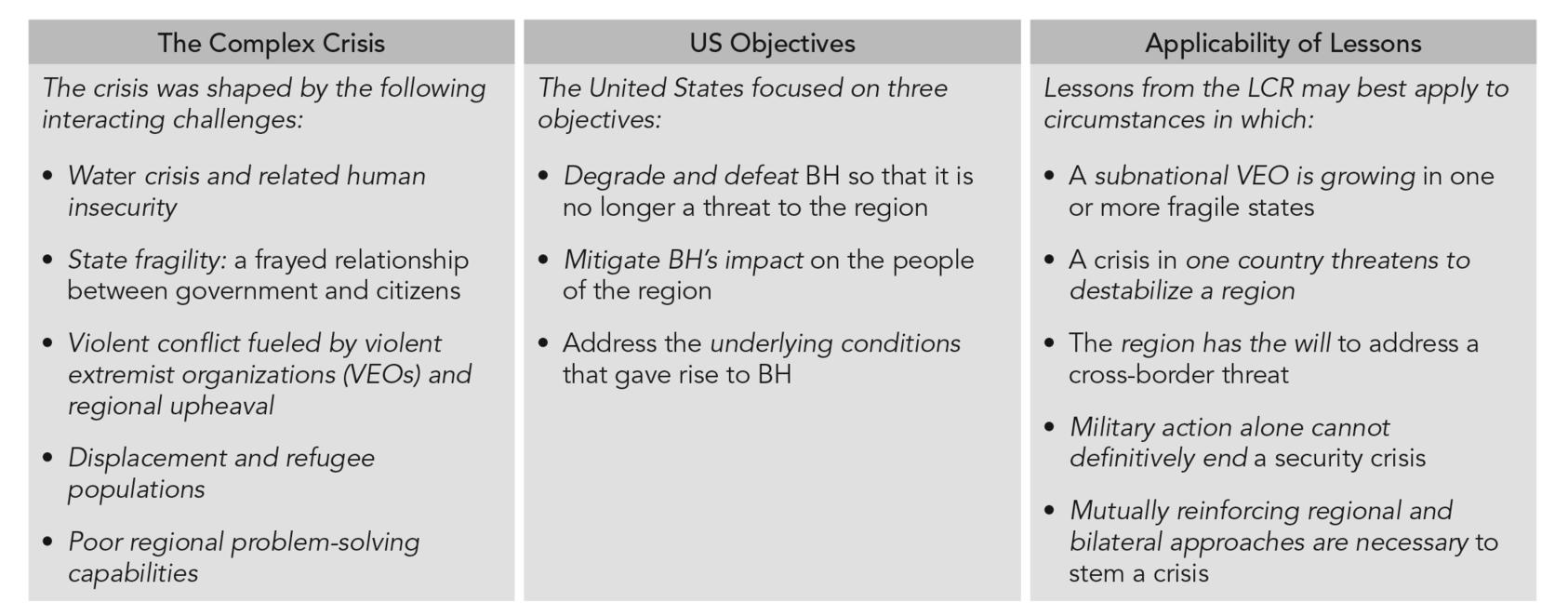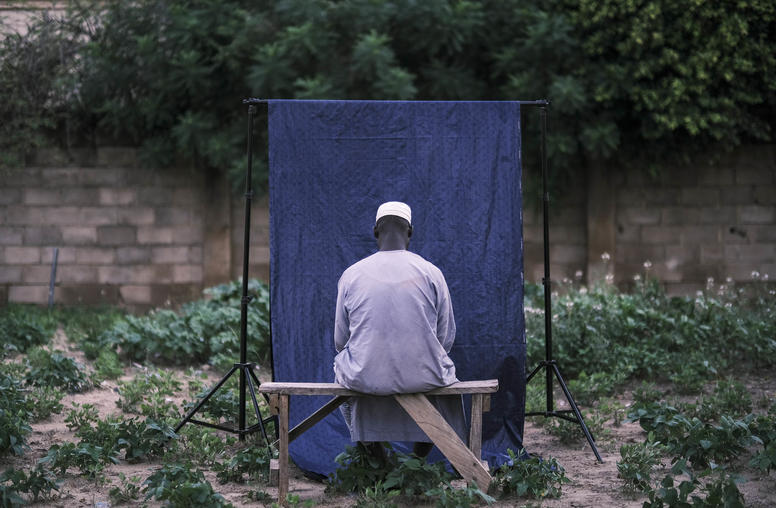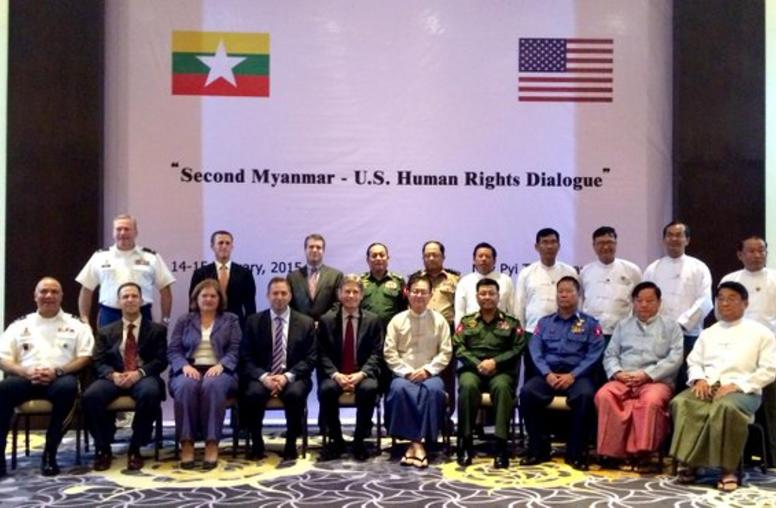Breaking Boko Haram and Ramping Up Recovery: US-Lake Chad Region 2013-2016
Case Study: Defense, Development and Diplomatic (“3D”) Learning from Complex Crisis
This series of case studies—Burma (2009-2015), Jordan (2011-2016), and the Lake Chad Region (2013-2016)—document efforts and draw lessons from where US government leaders believe deepening crises were staved off through collaborative inter-agency engagement. Part of USIP’s “3D Learning from Complex Crises” project, the cases provide programmatic and operational lessons from complex operating environments. These lessons support systemic integrated approaches to complex crises and will better equip individuals to share objectives when working in inter-agency environments.
Case Background
The Lake Chad region (LCR) is an example of a region in which violent extremist activity has arisen from and exacerbated an environment of resource shortage and underlying state fragility. The extremist activity spurred a cross-border security and humanitarian crisis that existing regional cooperation mechanisms were unprepared to address.
Originally an Islamist criminal group in northeastern Nigeria, Boko Haram (BH) acquired new leadership that began in 2009 to take the group down a violent extremist path. BH rapidly amplified the lethality and frequency of its attacks on government and civilian targets in Nigeria, while recruiting from marginalized, exploited, and impoverished populations across the region. BH withstood the Nigerian authorities’ poorly planned, poorly resourced, and half-hearted attempts to beat it back. By 2013, BH had conducted hundreds of attacks and killed thousands. Hundreds of thousands of civilians fled to safer communities within Nigeria and to nearby Cameroon, Chad, and Niger, even though BH mounted cross-border attacks. LCR countries’ security forces played a cross-border cat-and-mouse game that kept BH on the run but failed to degrade the group until regional cooperation drove BH from captured territory in 2015.

The US Defense, Development, and Diplomatic Response
The United States took special note of BH in 2011, concerned that the group would converge or cooperate with al-Qaeda in the Islamic Maghreb (AQIM) and develop the ambition and capability to threaten US national security. The United States implored Nigeria to remedy poor governance and address corruption and serious abuses by government and security forces, which BH leveraged to recruit members in northeast Nigeria and in some cases prevented the United States from offering requested security assistance. By 2014, these attempts had failed, so the United States tried a new approach: treating BH as a regional problem and working to convince the LCR countries to cooperate to defeat BH. The 3Ds used bilateral approaches to help these countries fight BH and mitigate its impact, while also organizing regionally focused platforms, working groups, programs, exercises, and plans to support cooperation and undermine BH recruitment. The 3Ds delivered humanitarian assistance to internally displaced persons (IDPs) and refugees, supported community resistance to BH, and advised and built the capacity of partner security forces. US support was key to helping LCR countries’ forces collaboratively clear and hold territory the size of Belgium.
Summary of Lessons from the LCR
The case study review process yielded a series of lessons in two parts:
- The use of bilateral approaches to meet country-specific challenges to stemming crisis in the region
- Efforts to stitch together bilateral approaches to holistically stem a regional crisis




